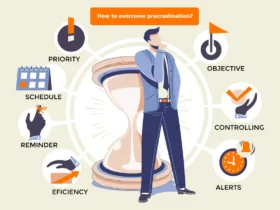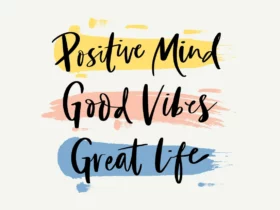Gratitude is more than just saying “thank you.” It’s a powerful practice that can shift your perspective, improve your relationships, and enhance your overall well-being. Gratitude isn’t just about acknowledging the good things in life; it’s about fostering a positive mindset even during challenging times. In this blog, we’ll explore how gratitude impacts your life, share scientific insights, and provide actionable ways to cultivate thankfulness daily to transform your mental health and happiness.
What is Gratitude?
Gratitude is the practice of recognizing and appreciating the good things in your life, whether big or small. It’s about focusing on the positives rather than dwelling on the negatives. Gratitude doesn’t mean ignoring life’s challenges but choosing to see the blessings even amidst difficulties. Studies have shown that gratitude can reduce stress, improve sleep, and increase feelings of happiness and contentment.
Researchers have found that gratitude activates the brain’s reward system, releasing feel-good chemicals like dopamine and serotonin. This explains why grateful people tend to be happier and more satisfied with their lives.
How Does Gratitude Contributes to Our Daily Life?
Being thankful goes beyond politeness; it has tangible benefits for your mind, body, and relationships. Here are some ways gratitude can change your life:
- Improved Mental Health: Gratitude reduces symptoms of anxiety and depression by fostering positive thinking. It encourages a more optimistic outlook, helping you navigate life’s ups and downs with resilience.
- Stronger Relationships: Expressing gratitude strengthens bonds with loved ones and builds trust. When people feel appreciated, they’re more likely to reciprocate, creating a cycle of positive interactions.
- Better Physical Health: Studies suggest that grateful people experience fewer aches and pains and take better care of their health. Gratitude is linked to healthier habits like regular exercise and better sleep.
- Enhanced Resilience: Gratitude helps you cope better with challenges and setbacks. It shifts your focus from what’s going wrong to what’s still good in your life, boosting your ability to persevere.
- Increased Self-Esteem: Grateful people are less likely to compare themselves to others, fostering a stronger sense of self-worth.
How to Cultivate Gratitude Daily
Incorporating gratitude into your life doesn’t require grand gestures. It’s the small, consistent practices that make a significant impact. Here are some simple ways to make gratitude a daily habit:
1. Keep a Gratitude Journal
Each day, write down three things you’re grateful for. Reflect on why these things matter to you and how they improve your life. Over time, you’ll notice a shift in your perspective, as you become more attuned to the positive aspects of your day-to-day experiences.
2. Express Gratitude to Others
Take time to thank the people in your life. Whether it’s a heartfelt message, a small note, or a verbal acknowledgment, expressing appreciation strengthens your relationships. Letting someone know they’ve made a positive impact on your life can deepen your connection and create a ripple effect of kindness.
3. Practice Mindful Gratitude
During your day, pause to acknowledge the good moments, like a warm cup of coffee, a kind gesture, or a beautiful sunset. Mindfulness helps you fully experience these moments and appreciate them for what they are—gifts that enrich your life.
4. Use Visual Reminders
Place sticky notes with gratitude affirmations around your home or workspace to keep positivity at the forefront of your mind. These reminders can be as simple as “I am grateful for today” or “Every day brings new blessings.”
5. Create a Gratitude Jar
Write down things you’re grateful for on small pieces of paper and place them in a jar. At the end of the month or year, revisit these notes to relive the positivity. This practice not only reinforces your gratitude but also gives you a tangible record of your blessings.
6. Start Your Day with Gratitude
Begin your morning by reflecting on what you’re thankful for. Starting the day on a positive note sets the tone for the hours ahead. You can also incorporate this into your morning routine, such as during meditation or over your first cup of coffee.
7. Focus on the Present Moment
Gratitude is rooted in the present. Avoid dwelling on past regrets or future worries and instead, embrace the joy of what’s happening now. This can be as simple as appreciating the sound of birds chirping or the warmth of the sun on your skin.
8. Share Gratitude Online
Consider sharing something you’re thankful for on social media. This not only spreads positivity but also inspires others to reflect on their blessings. Use hashtags like #GratitudeJourney or #ThankfulToday to connect with like-minded people.
9. Practice Gratitude During Meals
Before eating, take a moment to appreciate the food on your plate. Reflect on the effort it took to bring that meal to your table, from farmers and cooks to loved ones who prepared it. This simple practice fosters gratitude and mindfulness.
Real-Life Stories of Gratitude
Gratitude has transformed countless lives. Consider the story of a working mother who started journaling her gratitude. She found that by focusing on the positives, she became more patient and present with her children. Another example is a young professional who overcame burnout by focusing on small daily wins and expressing gratitude to her team. These stories remind us that gratitude is a tool for finding peace and joy, even in challenging times.
One elderly man shared how he started sending weekly thank-you notes to people who had impacted his life. Over the years, this practice not only deepened his connections but also gave him a profound sense of fulfillment.
Another inspiring story comes from a teacher who introduced a gratitude circle in her classroom. Each student would share one thing they were grateful for every morning. This practice not only improved classroom morale but also taught children the value of appreciation.
Conclusion
The power of gratitude lies in its simplicity and effectiveness. By focusing on what you have rather than what you lack, you can create a more positive and fulfilling life. Gratitude isn’t just a one-time act; it’s a lifestyle that shapes your thoughts, actions, and relationships. Start small, be consistent, and watch as thankfulness transforms your perspective, relationships, and happiness.
So, what are you thankful for today? Share your thoughts in the comments below and inspire others to embrace gratitude. Remember, every moment holds something to be grateful for—all it takes is a little mindfulness to notice.



















Leave a Review